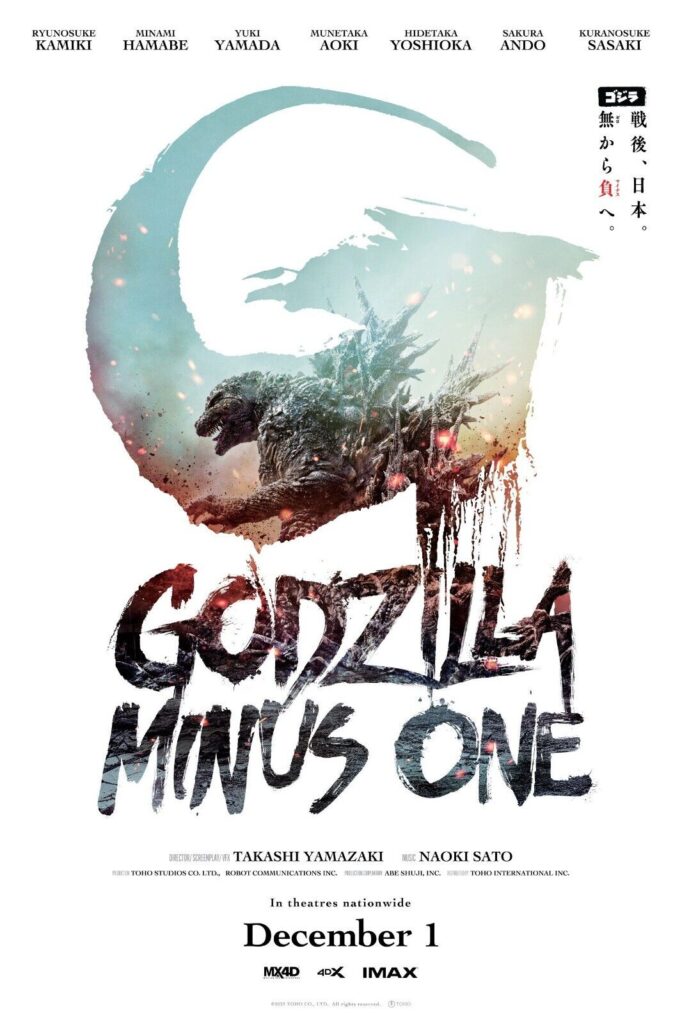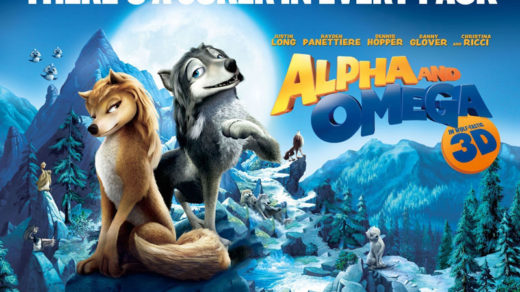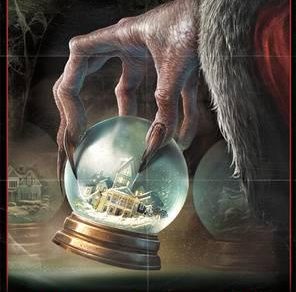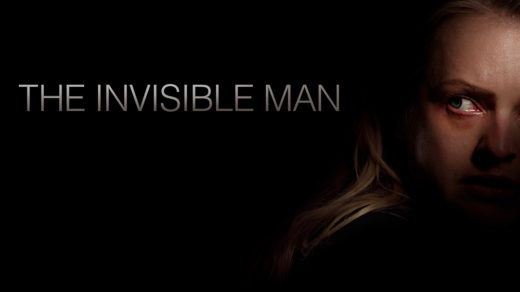
Godzilla Minus One (2023)
Directed by Takashi Yamazaki
70 years ago, the face of cinema changed in an instant when the king of the monsters, Godzilla, burst onto the scene in a classic horror movie about, among other things, the horrors of nuclear warfare. Things changed a lot for Godzilla after that and he became everything from a villain, a force of nature, a protector of children, and even the guardian of Earth when extraterrestrial beasts reared their ugly heads again and again, but Godzilla was and still is the best kaiju. Sure, there are a million spinoffs, knockoffs, and ‘inspired by’ monsters, but none of them have stood the test of time like Godzilla, a monster I am 100% sure you can clearly picture in your head right now without me even having to describe him. With more than 30 films in the series there were bound to be some bad ones, and boy were they bad, but none of that matters because Godzilla Minus One is here to remind everyone how it’s done and make it look easy.
At the end of World War II, Japanese pilot Koichi Shikishima diverts from a kamikaze mission and lands at an air base on a sparsely populated island, supposedly due to technical issues. During the night, an attack from a dinosaur-like creature devastates the island, and Shikishima is sent home to a devastated Tokyo following the end of the war. Shikishima, grappling with intense PTSD and survivor’s guilt, attempts to rebuild his life that was shattered by the war, even reluctantly taking in a young woman with a baby. Unbeknownst to him however, an American atomic test at Bikini Atoll manages to do the unthinkable and change the creature that Shikishima saw into an unstoppable monster, a monster with its eyes set on the newly rebuilt Tokyo.
Harkening back to the original Godzilla, which Minus One feels like a reimagining if not outright remake of, Godzilla Minus One is an intense human drama mixed in with a city-destroying giant monster, and both of these elements blend perfectly with each other. A lot of Godzilla movies get flak, usually rightly so, for focusing too much on the human characters while the giant monster spectacle should be the star of the show, but that’s almost always because the humans aren’t too interesting in those movies, unlike in Godzilla Minus One.
Even without Godzilla present, the drama of Shikishima’s life and his struggles with his own mental health tells a heartbreaking story of the lingering effects of war, not just on those who perished but on those who survived. A large part of why this works so well is the performances which are, for lack of a better term, immaculate. The entire cast is brilliant as a microcosm of the Japanese post-WWII experience; everyone from the civilians angry at the returning soldiers to the youngsters disappointed that they didn’t get a chance to prove themselves, and the older world and war-weary folk, they all represent some aspect of Japanese society while also still functioning as fully fleshed out characters themselves. The knife gets twisted even further when Godzilla arrives, shattering any postwar optimism and destroying what was painstakingly rebuilt in the shadows of the war.
Speaking of that destruction, I had heard that Godzilla Minus One was a modestly budgeted movie, by American standards at least, and if I hadn’t known that going in I absolutely would have never thought that after seeing it. This movie looks great, not just in terms of CG or effects, but in terms of set design and visual style, which are appealingly gritty. That grittiness especially comes into play when Godzilla’s rampages dial-up, showing how violent, grotesque, and truly frightening they would be were they to happen in real life. This may be the biggest singular success of the movie, taking Godzilla and changing him back from a fighter of evil or defender of earth and plopping him squarely into the ‘giant city-destroying monster’ category that he invented. But that only works because you care about the humans here; in so many other Godzilla movies you cheer whenever Godzilla destroys a building or grabs a train-car, here you just want Godzilla to stop, so when the humans unveil their plan to kill Godzilla, a plan that makes sense, you want them to win.
Godzilla Minus One is a movie that is deceptive in its simplicity. It seems obvious that giant monster attacks are bad and humans should be the default good guys whom we root for, but only in movies like this does that make so much sense. The spirit of humanism permeates Godzilla Minus One, not just in a way that is human-centric or human focused, but in the sense that humans have a right to live, to be happy, and to be free from the shackles that bind us, be that trauma, duty, or fear. It’s way more touching than I thought a Godzilla movie would be, and yes, I will be honest and say that at the end I did tear up a bit. Godzilla Minus One might just be the best movie of 2023.



Recent Comments